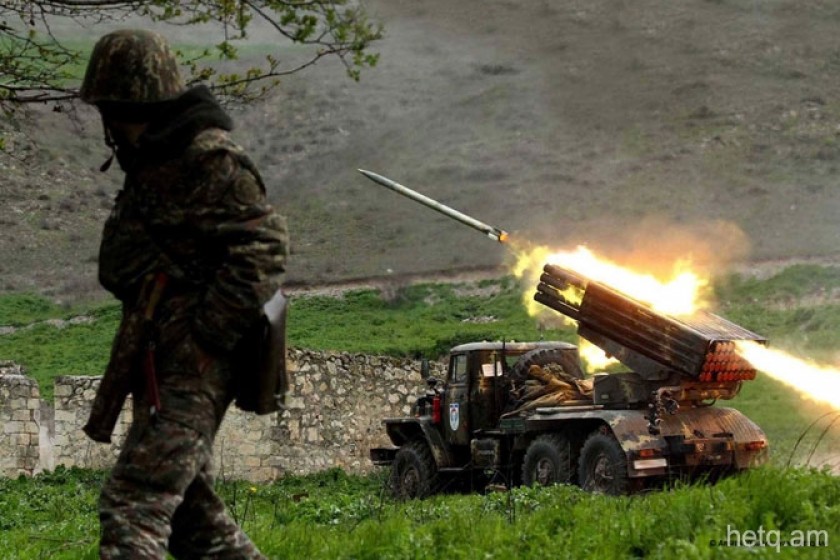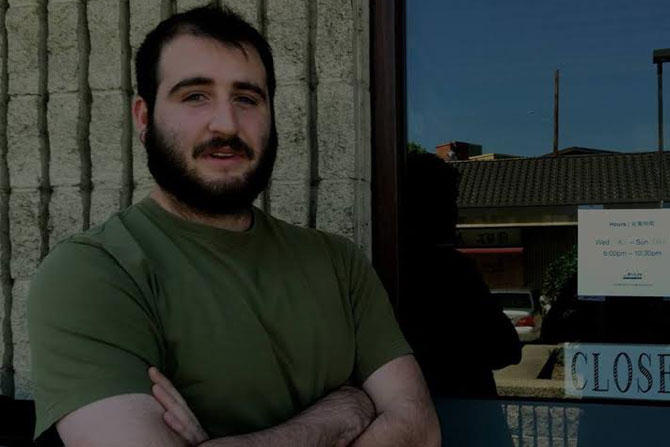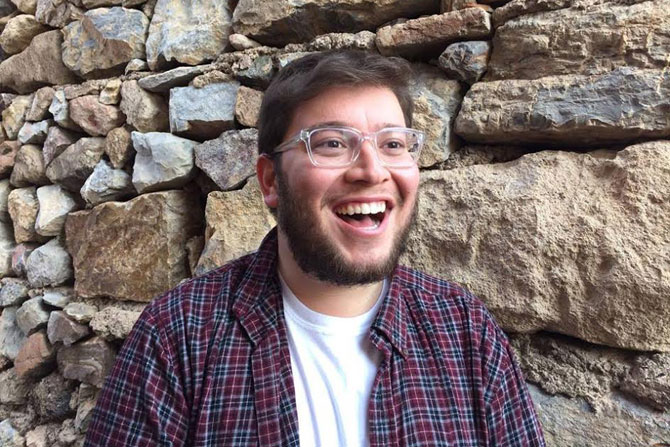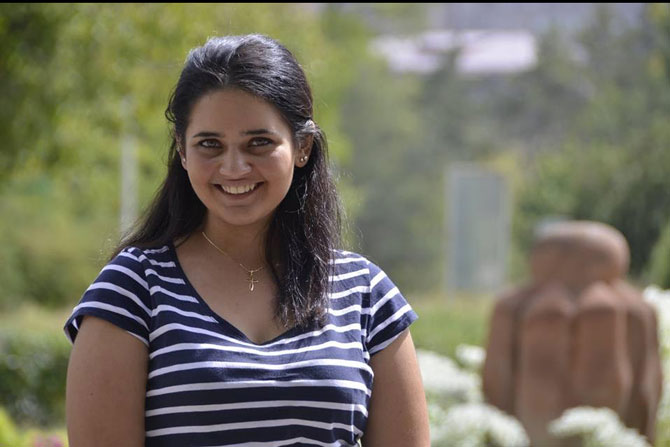
Diasporans in Armenia: Three Conversations About Karabakh
By Katherine Berjikian
While I was growing up in the United States, I rarely heard about Nagorno-Karabakh.
I knew that there was land near Armenia that was called Nagorno-Karabakh, and that there was an ongoing conflict between Armenians and Azerbaijanis, but this conflict did not play a central role in my life or how I saw the world.
While both of my parents are Armenian, neither of them spent much time in Armenia. They were born in Syria and Lebanon, and their war was the Lebanese Civil War not Nagorno-Karabakh.
I mention this not because I see Nagorno-Karabakh as an irrelevant issue for Armenians in the diaspora, but to point out that as a diasporic Armenian my relationship with Nagorno-Karabakh and what it means to be Armenian is going to be different from Armenians that have grown up in the Armenian state. And while I’ve lived and worked in Armenia, I noticed that this is true for many diasporic Armenians from all around the world.
I am currently part of a program called Tebi Hayk, or Birthright Armenia. This is a program that houses diasporic Armenians in Armenia for a period of time from fourteen weeks to one year, and in return the participants agree to volunteer and work in Armenia.
For this article I asked three of my fellow volunteers how they felt about Nagorno-Karabakh. And I found their opinions vary dramatically, regardless of the fact that they are all ethnically Armenian.
The following are summaries of the conversations I had with them about Nagorno-Karabakh.

Mher Apo Boghigian
Mher is twenty-two years old, and had been in the Birthright program for a couple months when I recently interviewed him.
Mher is one of the rare volunteers who has been exposed to the Armenian community for the majority of his life, and has spent part of his childhood in Armenia. Mher was also raised in the Los Angeles, which has the largest Armenian community in the United States. And while the statistics vary, the numbers range from two hundred fifty thousand Armenians to half a million.
Because of the large number of Armenians in Los Angeles, there is an already established infrastructure for the Armenians currently living there. This includes many community centers and schools readably accessible to the Armenian youth.
Unlike myself, Mher knew about Nagorno-Karabakh from his early childhood.
When I asked to describe how the conflict is discussed in the United States he stated: “The general understanding is that…we know that we have border conflicts, we know that there is technically a ceasefire. And I’m talking on behalf of other Armenians there. At least some informed ones. We know that it is technically not a war, but we are killing each other...I don’t know what the mentality is. It’s not a full on war mentality, obviously, it’s not an official war, it’s like an unofficial war.”
Like many other Armenians his age, Mher went to Armenian school for most of his life, and was an active participant of the Armenian Youth Federation. The AYF is the youth faction of the ARF - the Armenian Revolutionary Federation. It is a large part of Armenian youth life in the United States. They regularly host after school activities, events, and protests about issues effecting the Armenian community and the larger Middle Eastern community.
In AYF, there is a focus on Armenian nationalism, and political education. During AYF meetings members sing the Armenian national anthem and have educational talks. Many of these events, both educational and social, are meant to bring the Armenian community together and educate them.
In his late teens, Mher was corresponding sectary for the AYF Burbank chapter. And when he went to UC Berkeley, an area with a far smaller Armenian community, he joined his school’s Armenian Student Association.
Because of the large number of Armenian in LA, the Armenians have also historically been a very active political presence. For example, every year on April 24th there is a protest in front of the Turkish consulate, and recently, AYF has to work with Palestinian soldiery groups in the United States.
Therefore, it is not shocking that the Armenian community in the United States rallied around Nagorno-Karabakh in the hopes of spreading awareness in the US. During the four day war, there were protest in front of the Azerbaijani consultant, a flash mob protest at the Americana in Glendale, a large open air mall, and far more on college campuses throughout California.
When we talked about this, Mher stated the following, “In my opinion, the only thing a diasporic can do who is living here is to keep contact with others in the United States and just try to battle the misinformation. Because…this isn’t just a war on the ground, this is a war in the media.”
In UC Berkley, the college that Mher attended, the Armenian Student Association made a GOFUNDME page that raised seven thousand dollars for the troops in Nagorno-Karabakh.
When asked about how he felt as a diasporan in Armenia during the escalation of violence, he stated the following: “I can’t help and feel like I’m close to a tourist here. I can’t help and feel that way. I’m part of Birthright Armenia, I’m part of a group that is paying for my trip to come here. Allowing me to work wherever I want based on my interests…And ultimately I’m just living here without the fear that if a war happens I’m going to get drafted. There is a huge divide there and there is nothing I can do about that. I’m just not a citizen. Of course I can voluntarily go and fight, but that’s not something that I’m going to do personally.”
Izabel Sarkissian
Izabel is a Kuwaiti Armenian with both Syrian and Armenian citizenship. She, like the other two people I interviewed, went to Armenian school growing up. While I did not know much about the Armenian community in Kuwait before interviewing her, she informed me of the large number of Armenians currently living there; around 3,000 Armenian families. Most of them are originally from Lebanon, Syria, and Iran, and are new arrivals to the country.
Growing up, Izabel and the Armenian community in Kuwait felt a great connection to the Armenian state. And like other diasporic communities around the world, they donated money and goods throughout the years to Armenia.
While in school, Izabel also took both Armenian history and language classes. While we talked, she stated that in her Armenian history classes she learned the names of the Armenian political parties, about Nagorno-Karabakh, and the names of the soldiers who died during the war in the 90s.
While she cannot remember the first time she heard about Nagorno-Karabakh, she figured that is probably from watching the Armenian TV channel in Kuwait or Armenian news, which her family regularly watched.
Izabel is currently a student at the National University of Architecture and Construction in Armenia . In the American University, many of Izabella’s classmates are currently serving in the Armenian military or have just finished their service. In Armenia, boys go to the Armenia military for a period of two years from the age of 18 to twenty.
While I spoke with her, she stated that one of her worries is that if there is a war they are going to call everyone to go and fight. And in fact, this has already happened. While we spoke, she talked about the tragic loss of two of her classmates.
“And now we heard one of my classmates, who is in military service, was attacked by Azerbaijani troops. I don’t know how many Armenian soldiers died, but twenty five of them were kidnapped. And he was one of them…We still don’t know what happened to them. But today they said that they beheaded the kidnapped soldiers. But we are not sure if the guy that I know is one of them or not. And just today, we heard that one of the university students had just died, and we went to university and we saw his picture at the entrance, with the flowers and the candles on the table. And the girls who were his classmates, they were crying in the library. They were just sitting there, talking and crying.”
While we spoke, she stated that everyone was worried about the possibility of war between Azerbaijan and Armenia. And she spends a lot of her time with her classmates discussing this possibility.
Another worry she has discussed with her classmates is the possibility of this being a yearly thing.
“If this stops now, they think, and me too, that this is going to happen every year. That they are going to shot, soldiers are going to die, and then they are going to talk, and everything is going to be fine after that. Like, if this stops now, and nothing happens, this will happen every year. And now they took some land from Karabakh which they didn’t return. So we think that if we didn’t command them to return it, and we leave that land to them, they are going to attack us every year. And meter by meter they are going to take all of Karabakh.”
Like the other people I interviewed, I asked Izabel what she thought the diasporic Armenian’s role is when it comes to the conflict in Nagorno-Karabakh.
She responded: “I can only say about Syrian and Kuwaiti Armenians. I can’t talk about Armenians in other countries like America. But we are close to our Armenian community, and our country, and we are not going to allow Azerbaijan to attack it and take our lands. So they will come and fight. I’m sure about that.”

Kyle Khandikian
Kyle is 23 years old, and American. Like Mher, Kyle grew up in the Armenian community in Los Angeles. He also went to private Armenian school from kindergarten to his senior year in high school.
When I was speaking to him, he made a point to acknowledge that growing up he felt very close to the Armenian community in Los Angeles. He stated “That was my educational environment, that was my social environment that was my entire life before college, was that community…I always felt very ‘Armenian.’… I put it in quotes, because being Armenian is lots of different things for lots of different people. But for me personally, my Armenian identity has always been a very important part of identity, as a human being.”
While we spoke, Kyle stated that this was in large part to the education that he received in his Armenian school. In Los Angles, many of the private Armenian schools are connected to the ARF, the Armenian Revolution Federation. And because of this, the schools are very nationalistic. Even his family, before immigrating to the United States, was part of the ARF in Lebanon.
Growing up in the Armenian community in the United States, images of the genocide are everywhere. And activism that attempts to recognize the genocide is a central part of many young Armenian’s lives. For example, many University of California campuses have recently divested from Turkey. This was a campaign that was in large part pushed and fought for by the UC’s Armenian Students Associations.
There are no similar mass movements in regard to Nagorno-Karabakh.
Kyle elaborated on this when I talked to him. He stated, “I don’t remember the first time I heard it, but it was always sort of framed as being a part of this bigger conflict, this bigger clash between nations. And those nations being the Armenian nation and the Turkish nation. I feel that growing up in the Armenian diaspora the Armenian genocide and denial of the genocide, and justice for the genocide, as an issue, as a political issue, and also as an issue in terms of identity for people who are descendants of survivors of the Genocide, that issue overshadowed the Karabakh issue for sure...At least in my experience, and what I have seen as a diasporic Armenian, Karabakh is kind of an afterthought.”
Like Mher, Kyle also saw a divide between himself and the Armenians with Armenian citizenship. He stated, “I certainly stand in solidarity with the people of Karabakh and the people of Hayastan who I do feel like really are my compatriots. But there certainly is a power imbalance of privilege when it comes to this issue. And being conscious of my privilege as an American citizen in this country has been very important. In the way that I express myself. Because the last thing that I want to do is contribute to this cycle of hatred and nationalism and othering of people.”
While I spoke to Kyle, nationalism and the role it played in the current conflict was a major theme we discussed. He stated that he thought this was one of the most important things a diasporic person could change in the way that they talk about the conflict that might positively change things. He stated, “We are teaching them that the Turks killed a million and a half of us a hundred years ago, they did the same thing in Baku…And so, its nationalism. Its othering. That’s not a solution to this problem. In fact, it only contributes more to this problem and makes it worse. Because you are just fanning the flames of nationalistic hatred.
And so, what I would like to see, and I would like too hopefully one day do, is really change that. And really empower students to begin to think outside of the limits of nationalism. Outside of the limits of what it means to be an Armenian and how to express solidarity. Not just with Armenia, but with people in Azerbaijan who want peace. The people who don’t like this ultra-nationalistic rhetoric and this constant hatred and othering of these people. Because that’s ultimately how this conflict is going to end.”
(Katherine Berjikian is a Birthright Armenia volunteer from the U.S. now working at Hetq)
 Videos
Videos Photos
Photos





Comments (6)
Write a comment